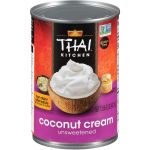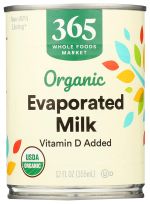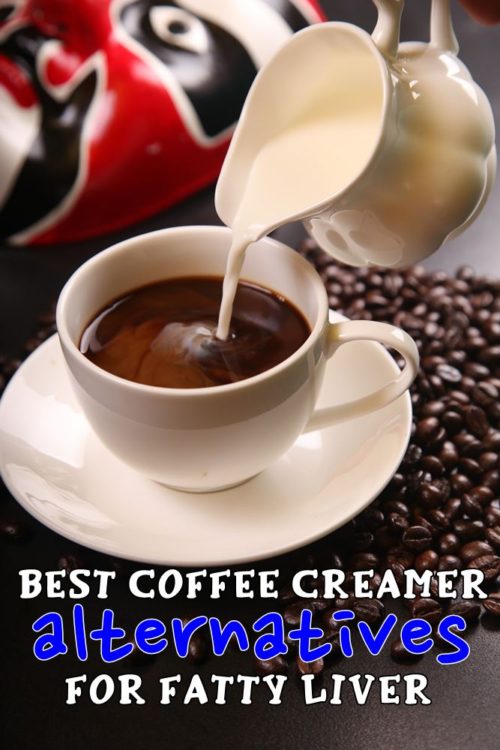I was recently asked by one of this blog’s readers what is the best coffee creamer alternative for those diagnosed with a fatty liver disease. I decided to share the best alternatives today.
Since coffee is such an important part of our daily routine, I am sure you will find it useful, especially if you think you can’t have your coffee without creamer. These alternatives will make it easier.
If you don’t want to go through the entire article (although you really should), here are the two top alternatives to coffee creamer for fatty liver disease (affiliate links below):
| Gluten Free, Unsweetened Coconut Cream – Best choice | Organic Evaporated Milk (Unsweetened) – Good Alternative |
 Creamy & coconutty Gluten free No sugar added Great taste & texture |  Organic Milk with added Vitamin D More familiar taste Great, creamy texture |
| Check at Amazon | Check at Amazon |
Drinking coffee with a fatty liver / NAFLD
First things first, though! When drinking coffee, the best way to have it is without adding any creamer at all.
Drink it unsweetened if possible (if not, add a tiny bit of honey). You can also add some regular milk (low fat, ideally) to it if you want to. But that would be about it. The fewer things you add to your coffee, the better it is.
Coffee is actually good for the liver and also recommended to those suffering from a fatty liver disease (as long as they don’t have other health problems that make drinking coffee a big NO). You can read more about coffee and fatty liver here.
But some people are used to adding creamer to their coffee – and have been doing so for decades maybe, which makes it really difficult to simply stop using it.
In that case, we have to look for some coffee creamer alternatives that are safe for the liver. At the same time, we’ll always have this goal in mind: educate our taste buds to stop needing it… eventually.
Why is coffee creamer bad for non alcoholic fatty liver?
Although there are many brands out there and things vary more or less from one brand to another, we can safely say that coffee creamer is bad for those suffering from a fatty liver (and not healthy in general).
Usually, coffee creamers are highly processed and made with hydrogenated oils (probably the unhealthiest oils out there), lots of sugar and various flavors, most of which artificial.
Many also use additives that are not liver friendly, like carrageenan (which comes with a ton of health warnings).
But the additives and chemicals are not the only problem regular coffee creamers have: they also come with a ton of carbs (in some cases 60% sugar), and also a ton of fat (around 30%).
So we can say that coffee creamers are usually a mixture of fat and sugar – both extremely bad for a fatty liver. Tasty, yes… but unhealthy.
Best fatty liver-friendly alternatives to coffee creamers

There are two main things that coffee creamers do to our coffee: a change of taste and a change of texture by adding that yummy creaminess.
Unfortunately, there are not many alternatives available to offer both the texture AND the flavor of most coffee creamers, so we’ll have to compromise a bit. (Of course, it depends what your preferred flavor is – some are easier to replace than others).
My recommendation, when trying to find an alternative to make your morning coffee friendlier towards your liver, is to use something that gives a similar texture (simply because we have more options here).
Here are my recommended alternatives for coffee creamer:
– unsweetened coconut cream like this one (affiliate link)
– unsweetened evaporated milk like this one (affiliate link)
– unsweetened condensed milk (difficult to find)
I personally use, sparingly though, this brand of condensed milk in my coffee. It is sweetened with healthier sugar alternatives – stevia and sucralose. The latter is not the best sugar alternative out there, but as a treat I think it doesn’t do much harm.
At least it is zero fat, gluten free… and tastes good. But I have to admit that I will probably stop using any of these alternatives soon and drink my coffee plain (with a bit of milk).
All these alternatives will offer the same creaminess that coffee creamers do, but without the added sugar and additives. However, they are still relatively high in fat, so use as little as possible.

The rule of thumb here would be to use less than you normally would and reduce the quantities to a minimum over time.
So if you were adding 3 teaspoons of creamer to your coffee, for example, switch to 2 of condensed milk.
After 2 weeks or so, switch to just one, then use as little as possible moving forward – ideally until you can drink your coffee without any.
Or at least work your way down until you can accept your morning coffee with just added milk (low fat, ideally).
This would drop the added fat contents from around 9% (or even more) to just 1.5%. And these amounts do add up, helping you lose weight and be healthier overall!
What about the coffee creamer flavors?
The recommendations above only cover the creaminess – if that’s not enough, you should do something about flavor: the coconut cream already has a bit of extra flavor, but you can try adding real cinnamon (read about it here), or real vanilla or cocoa powder to the mix in order to get some extra flavors.
It really depends on what you like – you might or might not be able to find a replacement here and your coffee might not taste as it did when all those artificial flavors were used.
You can also add a bit of real, organic honey to sweeten your coffee. Most people are getting used (because of all the syrups and additives) to drink extremely sweet coffee, and it will take a while to adjust.
Add a maximum of half a teaspoon of honey to a large cup and work it down until you add just 1/4 of a teaspoon.
Ideally, you should drink your coffee black (or at least unsweetened), but I wasn’t able to do that.
However, 1/4 of a teaspoon of honey per day is not the end of the world as long as you eat healthy otherwise.
All I can say is that now, when I try eating something sweet (store-brought), I simply can’t understand how people can do it: everything store-brought is and feels like there’s way too much sugar added.
Before being diagnosed and completely changing my way of living, I was eating those cakes and pastries and candies and I was sometimes complaining that they weren’t sweet enough! That was crazy!
So what I am saying here is that you will be able to switch to eating healthy and LOVE it in the end. The same goes with your coffee creamer: it takes a bit to adjust, but it is doable and healthier for sure.

Conclusion
While you will, unfortunately, have to ditch your favorite coffee creamer after being diagnosed with fatty liver disease, there are alternatives out there, as you’ve seen already.
Just give it time and take things slower where a drastic change is impossible: but make it your goal to always eat (and drink, in this case) as healthy as possible.
Look for the alternatives, accept that they are not going to offer 100% the same experience, but embrace them as a welcome change to get your life back on track and become healthy once more!

I was diagnosed with a fatty liver back in 2014 and managed to reverse it by mid-2015. Since then, I’ve been studying it, continuously updating my knowledge with the latest scientific findings and practical approaches to give others the help they need to reverse their condition.
My approach to managing fatty liver is holistic, balancing scientifically-backed information with real-life, practical advice based on personal, direct experience.
I am also the admin of the Fatty Liver Support Group on Facebook and the Fatty Liver Subreddit.


How about using powdered milk in its dry form as a creamer substitute? It would add the creaminess without any sweetness.
I haven’t personally tried it, but it could work as well.
I’ve been using a non-dairy creamer, started when I was trying to find what was causing my stomach upset. I switch up my coffee, using it, and drinking black at other times. Good coffee really makes a different in needing cream or sweetener. It never occurred to me what impact it was having on my liver 🙁 I am right now trying to schedule my 6th month ultrasound. Not sure what to expect…
Health foods stores carry this. Califia Farms Dairy Free Almond and Coconut creamer. 1T has 0.5 gms fat, 0 carbs, 0 sugars.
However, certain healthy fats are good for our liver. I got mine due to excess protein. I ate way too much meat. Went on Keto watched protein and reversed mine. My liver was 22 cm in size and was classified as severe.
That’s awesome! I would love to hear how you did it and what other tips you have if possible.
with my situation, I was diagnosed with gallstones at the same time…so what might be ok for the liver, isn’t for gallstones.
For example, coconut anything is high in saturated fat… so can’t have with gallbladder disease… but in moderation people recommend for the fatty liver which I would disagree honestly.
Why even risk it or prolong the reversal by adding something so high in saturated fat into your body? So frustrating.
I’ve spent almost a year thinking honey, syrup and stevia were better and now learning even honey, in any amount worth tasting is bad… so I’m just defeated right now.
I’ve changed my diet drastically overnight. Haven’t drank anything for what will be 1 year this month, eat all organic, cut out red meat and pork… eat more vegetable based meals in between the pescatarian ones, eat less… dropped almost 50 pounds and still feel like I have to cut out things like peanut butter and sweeteners to really make a dent.
Then it’s not like they consistently check with ultrasound your liver… so you don’t really know what difference it’s making because a bum gallbladder or other issues will cause your liver enzymes to go crazy. uuugh…just a lot of stress. lol
I’ve come to the realization I just can’t get used to black coffee with stevia. There is nothing like real creamer and real sugar in a cup of coffee and since anything with coconut seems to make me sick, I guess I have to kick coffee like I did alcohol.
Sorry to hear about all the problems that you’re facing. Getting used to something new (like black coffee) takes time after many years of coffee creamer.
However, you losing 50 pounds in 1 year sounds like great progress. I am sure that your next ultra sound appointment will have great news for you. So keep it up!
PS: I have not touched alcohol since 2015 (when I was diagnosed) and haven’t touched it even after reversing my fatty liver disease, so anything is doable.